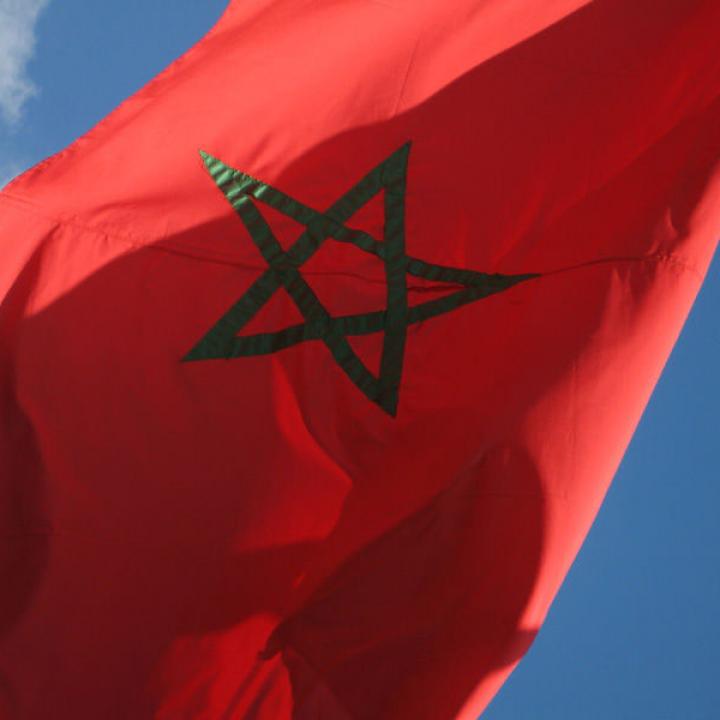

Islamists look weaker in the country's new leadership, while the king continues to show his influence.
Last Thursday, October 10, King Muhammad VI of Morocco signed off on the country's new cabinet after months of protracted negotiations. In the new cabinet, known as "Benkirane II," the secretary-general of the governing Islamist Justice and Development Party (PJD), Abdelilah Benkirane, for whom the coalition is named, retains the post of prime minister. The head of the centrist, pro-palace National Rally of Independents (RNI), Salah Eddine Mezouar, has secured the coveted foreign ministry portfolio from the PJD's own Saad Eddine al-Othmani. The RNI ruled in several coalitions before the PJD joined in the wake of February 20 Movement (M20F) protests (a pro-democracy effort that burgeoned following the 2011 Arab uprisings). A former RNI member turned independent, Mohamed Boussaid, has assumed the finance minister post, which was originally intended for Mezouar until public protests over his ongoing corruption case threatened his candidacy. Other unaffiliated technocrats have assumed the Interior and Education Ministry portfolios.
Speculation for some time has indicated that the PJD stands weakened by a confluence of events in Morocco and the broader region. The new cabinet confirms, meanwhile, the extent to which the PJD continues to be subject to the monarch's whims and the preeminence of the -- at times amorphous -- old guard.
In addition, last month's agreement between the RNI and the PJD essentially put to rest murmurs that new elections would be held after the departure from the coalition months ago of the center-right Istiqlal Party, which also once formed part of the unspoken monarchist alliance. The RNI-PJD deal left open the question only of which party would assume which posts. Istiqlal, which held the finance ministry in the previous cabinet ("Benkirane I"), pulled out of the coalition under the pretext that the PJD's push to cut spending by reducing fuel subsidies -- long central to the Moroccan social contract and the state's rent distribution -- would adversely affect Morocco's poor. This excuse raises eyebrows because Istiqlal (along with the monarchy) has long recognized the urgency in cutting spending and balancing the budget.
THE KING'S MEN RETURN
The PJD pledged to end corruption and serve as an alternative to the pro-palace bloc when it assumed office after the 2011 launch of M20F. Around this time, the PJD also investigated Mezouar for filching government funds for personal use, an affair that made him somewhat of a public rival to the governing Islamists. In spite of protests against Mezouar's potential ascension to the finance ministry, his party still managed to install one of its own, and Mezouar has acquired the equally, if not more, influential foreign ministry.
Opposition figures, international onlookers, and members of the M20F are suspicious of the new arrangement. Moroccan media is abuzz with articles calling Mezouar the "new head of government" and tongue-in-cheek headlines welcoming "Mezouar II" (rather than Benkirane II). Pointing to the many sweeping decisions and business-as-usual operations of the state in the "absence" of government during the coalition negotiations, these groups hold that the coalition's role in government is small. In their view, the PJD will not, and need not, be actively ousted. The makhzen (the king and his inner circle of décideurs) can patiently sit back while the return of the old guard allows the monarchy's longtime tactic to materialize: that of gradually and inconspicuously discrediting the PJD such that its popularity will wane on its own.
The Islamists are ever weakened. While on the one hand one could argue that these latest developments seriously undermine prospects for Moroccan democratization, there is little consensus on what could serve as a viable alternative to the status quo. Morocco's ability to remain stable, relatively secure, and a major non-NATO U.S. ally can be attributed, at least in part, to what many critics perceive as the monarch's chess game.
Beyond old guard incentives to weaken the Islamists, two more observations are worth mentioning. The first is that given the backlash against Islamists in the other parts of North Africa, PJD's position as a minority participant may allow the party the silent exit it needs. Second, as Mezouar was an important figure in brokering the 2004 U.S.-Morocco Free Trade Agreement, he is likely to be seen as bolstering the ever-important U.S.-Morocco bilateral relationship.
Vish Sakthivel is a Next Generation Fellow at The Washington Institute.



